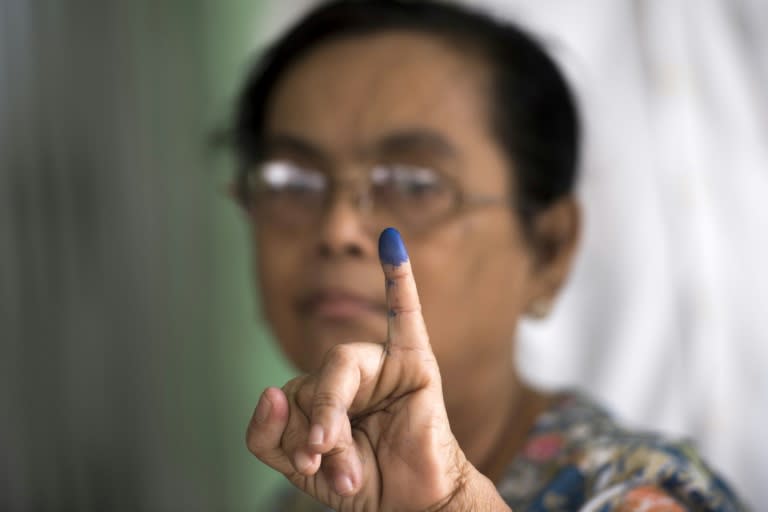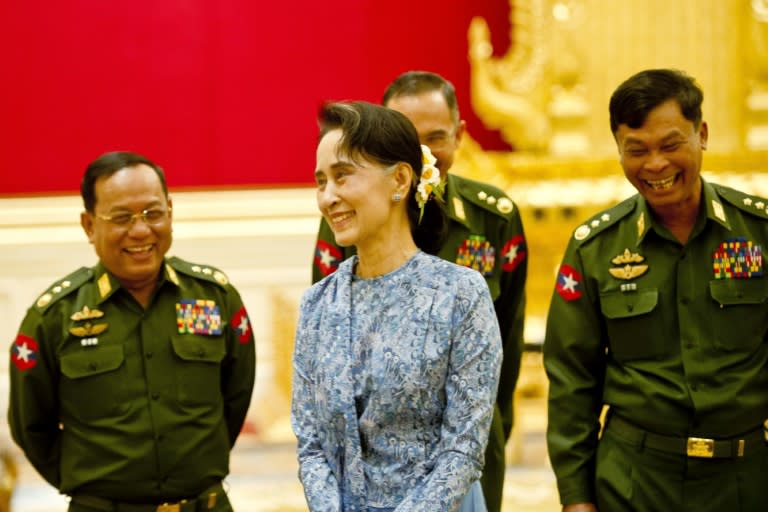Suu Kyi's new govt faces first test at Myanmar polls
Aung San Suu Kyi's government faced its first test at the ballot box on Saturday in by-elections around Myanmar seen as a barometer for growing disillusionment with her party after a year in office. The euphoria that surrounded the democracy icon's landslide electoral win in 2015 has ebbed as her party struggles to push through promised reforms. With only 19 contested seats, the by-elections will not alter the balance of power in a government firmly dominated by Suu Kyi's National League for Democracy (NLD). But the voting offers a chance to gauge the party's popularity after a rocky 12 at the helm. Discontent is particularly acute in frontier areas where many ethnic minorities see Suu Kyi as working too closely with the military that ran the country for 50 years. Yet the party remains the first choice for many in Myanmar, with early results showing the NLD poised to win five races in the commercial hub Yangon. "Based on the information we have, we won five seats in Yangon," the city's chief minister Phyo Min Thein told reporters at the NLD's headquarters. The full results are expected Sunday. While polling stations around the city lacked the enthusiasm and fanfare of the historic 2015 election, many voters still queued up to mark paper ballots and exercise their political rights. Most of the races were held for seats vacated by politicians who took up ministerial roles in the new civilian government. But others lie in remote areas where voting was never held in 2015 because of unrest. The NLD faces its toughest challenge to the north in Shan State, where tens of thousands have been displaced by a surge fighting between the army and ethnic insurgents. "There are many victims of war here and other ethnic areas now," Sai One Leng Kham, an upper house MP from the Shan Nationalities League for Democracy, told AFP ahead of the vote. "Sometimes (the NLD) works without any understanding of what's going on on the ground." - Ethnic politics - Myanmar's economic and political elite, including the NLD and army, have long been dominated by the majority Bamar ethnicity and are accused of steamrolling local cultures. In strife-torn Rakhine State on Myanmar's western coastline, the NLD is up against both the local Arakan National Party and the military-backed USDP. Both challengers peddle an ultra-nationalist line that may appeal to voters in a state seething with religious and ethnic tensions. The northern part of Rakhine has been engulfed in turmoil ever since a new Rohingya uprising erupted last October and was met with a bloody military crackdown. Some 75,000 of the Muslim minority have fled a brutal army campaign that UN investigators believe may amount to a crime against humanity. The crisis has posed a major moral challenge to Suu Kyi, who must contend with international pressure to defend the Rohingya and fervent anti-Muslim sentiment against the group by many at home. To the south in Mon State, the NLD faces controversy over the naming of a new bridge after Suu Kyi's father that many see as a symbol of the party's disregard for minorities. Suu Kyi herself is constitutionally barred from campaigning while in office. But she came out to defend the NLD in a rare national address to mark her administration's one year anniversary on Thursday. She conceded the party had "not achieved the level of development that people have expected". But the former activist stressed her commitment to rebuilding the impoverished nation and securing peace. "I believe most people are becoming increasingly aware that they do not have to live in fear of the government anymore," she added. "I see this as progress."



